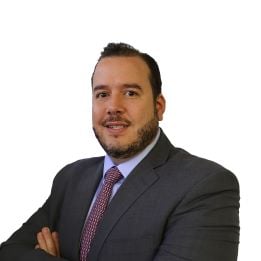

General counsel and head of compliance | Americas Mining Corporation (Grupo México Mining)




Manuel Hallivis Perez
General counsel and head of compliance | Americas Mining Corporation (Grupo México Mining)
Team size: 20-30
Can you discuss your or your company’s efforts relating to renewability, sustainability, or other environmentally-friendly activities?
At Grupo México Mining, we understand that our role in the global transition to clean energy brings both opportunities and responsibilities. Our operations are central to supplying the materials—such as copper, lithium, and other essential metals—that power renewable technologies, from solar panels and wind turbines to electric vehicles. Yet, while we enable the world’s greener future, we are equally committed to ensuring that our own processes evolve to reflect sustainable values.
We are investing in renewable energy to power our sites and are actively working to reduce our carbon footprint across operations. From water recycling systems and precision mining technologies to habitat restoration and biodiversity preservation programmes, we are embedding environmental stewardship into the core of our operations. We also support circular economy initiatives, identifying ways to repurpose mining by-products and reduce waste generation. For us, sustainability is not an add-on—it is a strategic priority.
Why are in-house lawyers well-placed to drive change in their organisations?
In-house counsel occupy a uniquely strategic position. We are not merely legal advisers—we are stewards of corporate ethics, risk management, and long-term value creation. With our cross-functional visibility, we are well-placed to influence decisions that shape corporate culture and impact stakeholders across the board.
As General Counsel and Head of Compliance, I see first-hand how legal teams can champion ESG priorities. We can integrate sustainability considerations into corporate governance, procurement, community relations, and even operational planning. By translating legal risk into business language and aligning it with long-term goals, we help our organisations not only to comply—but to lead. The most successful companies will be those whose legal teams are proactive, not reactive—driving innovation, resilience, and trust.
It can be challenging to measure a company’s track record in environmentally friendly behaviour. What, in your opinion, has mostly been missed in discussions about how green a company is?
The conversation around “how green a company is” often focuses too narrowly on carbon emissions or short-term metrics. What is frequently overlooked is the broader context—particularly the sector’s systemic importance in the energy transition and the long-term commitments companies are making.
In mining, for instance, it is critical to evaluate not just the environmental footprint, but also the positive contributions to decarbonisation and energy equity. A mining company enabling solar infrastructure or EV production plays a very different role to traditional polluters, yet public discourse rarely reflects that nuance.
Furthermore, sustainable practices such as land rehabilitation, ecosystem restoration, and community investment are long-term, complex efforts that are often underreported. Measuring true impact requires looking beyond the balance sheet and embracing a more holistic, forward-looking perspective.